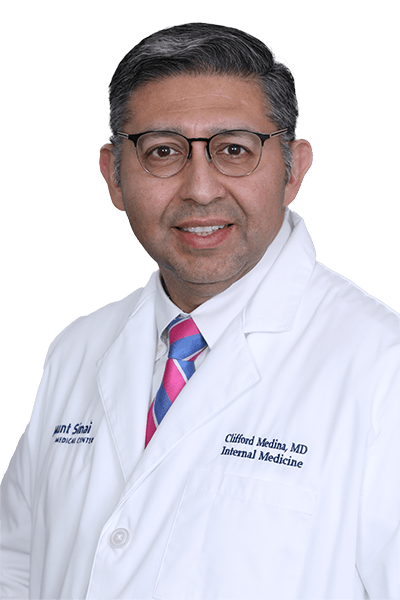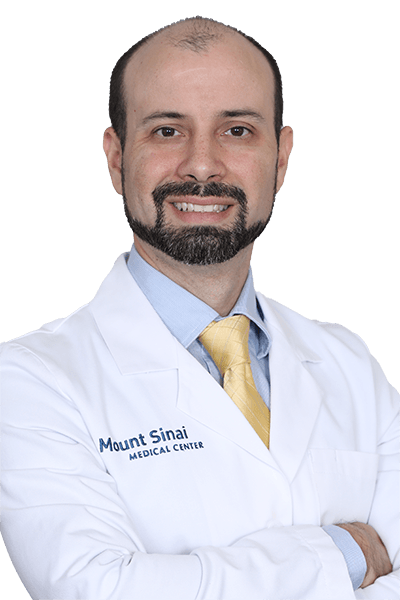Screenings
Cancer Screenings
An annual visit with a primary care physician is a great time to discuss cancer screenings that are age appropriate. Cancer screening guidelines are usually developed by organizations such as the American Cancer Society, the United States Preventative Task Force (USPTF), and the American College of Physicians (ACP).Commonly screened cancers include:
- Breast cancer: Breast cancer is the most common cancer in women, and screening is usually done with a mammogram. Average risk women between the ages of 40 and 49 should discuss the benefits and risks of screening with their doctors. For women ages 50-75, current guidelines recommend a mammogram every 1-2 years for most patients. Although these are the current guidelines, a visit with a primary care physician can help individualize screening recommendations, as personal and family history must be taken into consideration.
- Cervical cancer: Cervical cancer is the third most common gynecological cancer in women and is very treatable if detected early. Human papillary virus (HPV) is a risk factor for cervical cancer. Screening is done with a Papanicolau test ( Pap smear), which is usually performed by a gynecologist. Some primary care physicians may perform this procedure as well. For women ages 21-29, a regular pap smear is done every 3 years. Between the ages of 30-65, screening can be done every 3 years with a regular pap smear or every 5 years with a pap smear and HPV testing. Cervical cancer screening can be discussed with a gynecologist or a primary care physician.
- Lung Cancer: Lung cancer is the leading cause of cancer death in both men and women. Most people diagnosed are 65 and older, and smoking is the number one risk factor. Screening is encouraged for all smokers with a 30 pack-year history who are currently smoking and for those who have quit within the past 15 years. Annual screening is done with a low dose CT scan of the lungs starting at age 55.
- Colon Cancer: Colon cancer is the third leading cause of cancer deaths. Risk factors for colon cancer include smoking, obesity, a diet high in red meat, inflammatory bowel disease, a history of polyps, and diabetes. The gold standard for screening is the colonoscopy, which is performed by a gastroenterologist. For people ages 50-75, a colonoscopy is done every 10 years. A yearly FIT or FIT-DNA (Cologuard®) test can be done as an alternative to colonoscopy for colon cancer screening in some patients. Risks and benefits should be discussed with a primary care physician.
- Prostate Cancer: Prostate cancer is the second most common cancer in men. While very serious, most men diagnosed with prostate cancer will not die from it. The average age of diagnoses is 66, and the screening test is a blood test called the prostate specific antigen (PSA). Before this test is ordered, a discussion of risks and benefits of testing should take place between a patient and his primary care physician. Personal and family history and ethnicity should be taken into consideration.
Chronic Disease Screenings
Many conditions or diseases develop without warning signs or symptoms. Undetected disease that remains untreated can worsen and lead to long-term complications. A primary care physician is skilled in assessing for chronic disease through medical history, careful physical examination, and screening tests. Early detection of a chronic disease can lead to effective treatments, appropriate lifestyle modifications, and improved quality of life.
- Abdominal aortic aneurysm: An abdominal aortic aneurysm is an enlargement of the aorta, the main blood vessel that supplies the lower body with blood from the heart. An abdominal aortic aneurysm can grow and become life threatening if the enlargement ruptures. Men between the ages of 65 and 75 with a history of smoking should be screened. An ultrasound of the abdomen is the preferred screening modality. If detected, an abdominal aortic aneurysm is followed over time and may require surgery to prevent rupture.
- Diabetes: Diabetes is a chronic condition that affects the body’s ability to control blood sugar. Complications of diabetes include damage to the eyes, poorly healing wounds, stroke, heart disease, and kidney disease. Screening is done by checking blood tests in adults aged 40 to 70 who are overweight or obese. Even if an individual does not fall into the recommended screening category, a primary care physician may still screen for diabetes, depending on risk factors. Early detection and treatment of diabetes can prevent long-term, life-altering complications.
- Depression: Depression is a common mental health condition that is marked by feeling down, not eating well, and early awakening. Depression negatively affects a person’s ability to function. It can also lead to serious long-lasting symptoms, including loss of interest in activities, low energy, poor sleeping and eating habits, and feelings of worthlessness and guilt. Screening for depression is done by a primary care physician by conducting a medical history and mental examination. In certain instances, blood tests may be performed to ensure there aren’t any underlying medical conditions causing a depressed mood. If depression is diagnosed, medications or psychotherapy may be prescribed.
- Human immunodeficiency virus (HIV) infection: HIV attacks the cells of the immune system, making an individual more susceptible to infections and other diseases. If left untreated it progresses to the advanced stage, called acquired immunodeficiency syndrome (AIDS). Screening for HIV is done with blood tests. With early treatment and close follow-up, patients with HIV disease can live long, healthy lives.
- Hyperlipidemia: Numerous studies have demonstrated a relationship between high levels of low-density lipoprotein (LDL) cholesterol (“bad cholesterol”) and early death from cardiovascular events such as heart attack and stroke. A primary care physician routinely screens for hyperlipidemia through blood tests, and the risk of developing cardiovascular disease can be calculated for each individual. Patients with hyperlipidemia can be counseled on ways to naturally lower cholesterol through dietary and lifestyle changes. Medications are also commonly prescribed to effectively lower the risk of cardiovascular complications.
- Hypertension: Hypertension is one of the most common asymptomatic conditions diagnosed and treated by primary care physicians. Screening for high blood pressure in the office is the first step in preventing the devastating complications of hypertension such as a stroke, kidney disease, or heart failure. Sometimes, a patient may be asked to check their blood pressure at home and keep a diary. If the systolic pressure (top number) or diastolic pressure (bottom number) is consistently high, a patient may be diagnosed with hypertension. Treatment for hypertension is individualized, using lifestyle changes and medications.
- Osteoporosis: Many post-menopausal women, and some men, can develop osteoporosis. Osteoporosis is a low bone density condition that increases the risk of fracture. Primary care physicians screen for osteoporosis in order to prevent fractures in the hip, wrist, and spine. Physicians commonly use the FRAX® Fracture Risk Assessment Tool to estimate the 10-year risk of fracture. A bone density test is usually ordered to screen for osteoporosis. Common treatment recommendations emphasize the importance of weight bearing exercises, adequate calcium and vitamin D intake, and medications to prevent fractures.
- Peripheral arterial disease (PAD): Peripheral arterial disease is a narrowing of arteries in the body caused by an accumulation of cholesterol plaque in arterial walls. PAD is commonly found in the legs, and risk factors include older age, history of smoking or diabetes, high blood pressure, and high cholesterol. Symptoms can include deep pain in the legs or cramping when walking. Primary care physicians screen for PAD using the resting ankle-brachial index, which consists of taking blood pressure measurements in the ankles and the arms. An ultrasound test can sometimes be used to assess for PAD as well. Lifestyle changes, management of causative diseases, and medications are used to treat PAD. Sometimes, referral to a vascular specialist is required for surgical treatment.
Our Physicians
- Mount Sinai Medical Center (Main Campus)
- 305.674.2998
Andrés Eduardo Alvarez Loscher, MD
- Internal Medicine
- Chronic Disease Management
- Hypertension
- Cardiovascular Risk
- Heart Failure
- Diabetes
- Coronary Artery Disease
- Mount Sinai Primary & Specialty Care East Hialeah
- 786.584.5600
Ortal Babaev, DO
- Internal Medicine
- Mount Sinai Primary & Specialty Care Midtown
- 786.598.4560
- Mount Sinai Primary & Specialty Care Miami Shores
- 305.891.3710
Rubal Bhangal, MD
- Internal Medicine
- Mount Sinai Primary & Specialty Care Miami Shores
- 305.891.3710
Daniela Bignoli, MD
- Internal Medicine
- Mount Sinai Medical Center, Hialeah West – Emergency Center and Primary & Specialty Care | Mount Sinai Eldercare
- 786.584.5555
Vivian S Birnbaum, MD
- Concierge Medicine
- Internal Medicine
- Mount Sinai Medical Center (Main Campus)
- 305.692.1074
- Mount Sinai Emergency Center, Physician Offices, Cancer Center and Diagnostic Center Aventura
- 305.692.1080







